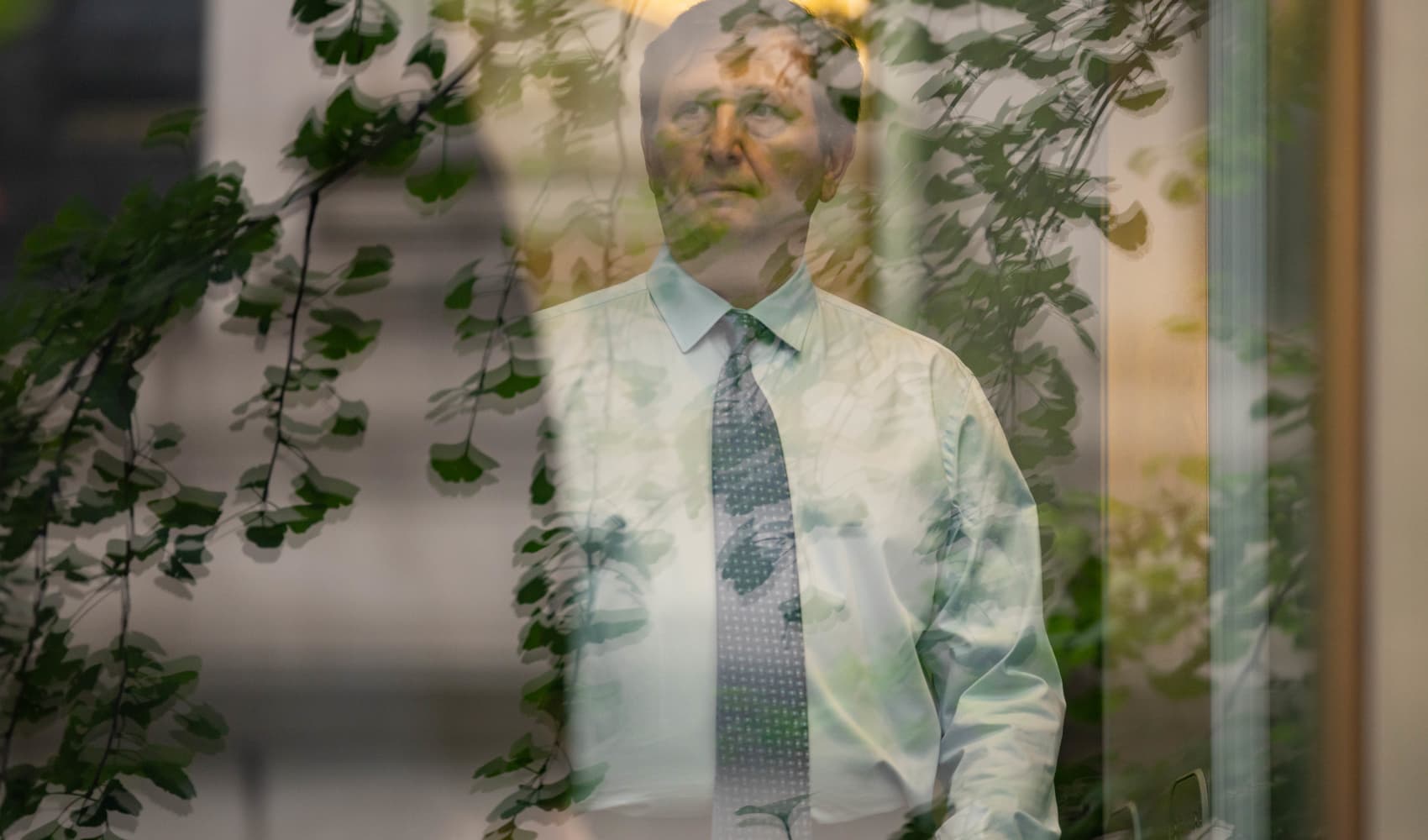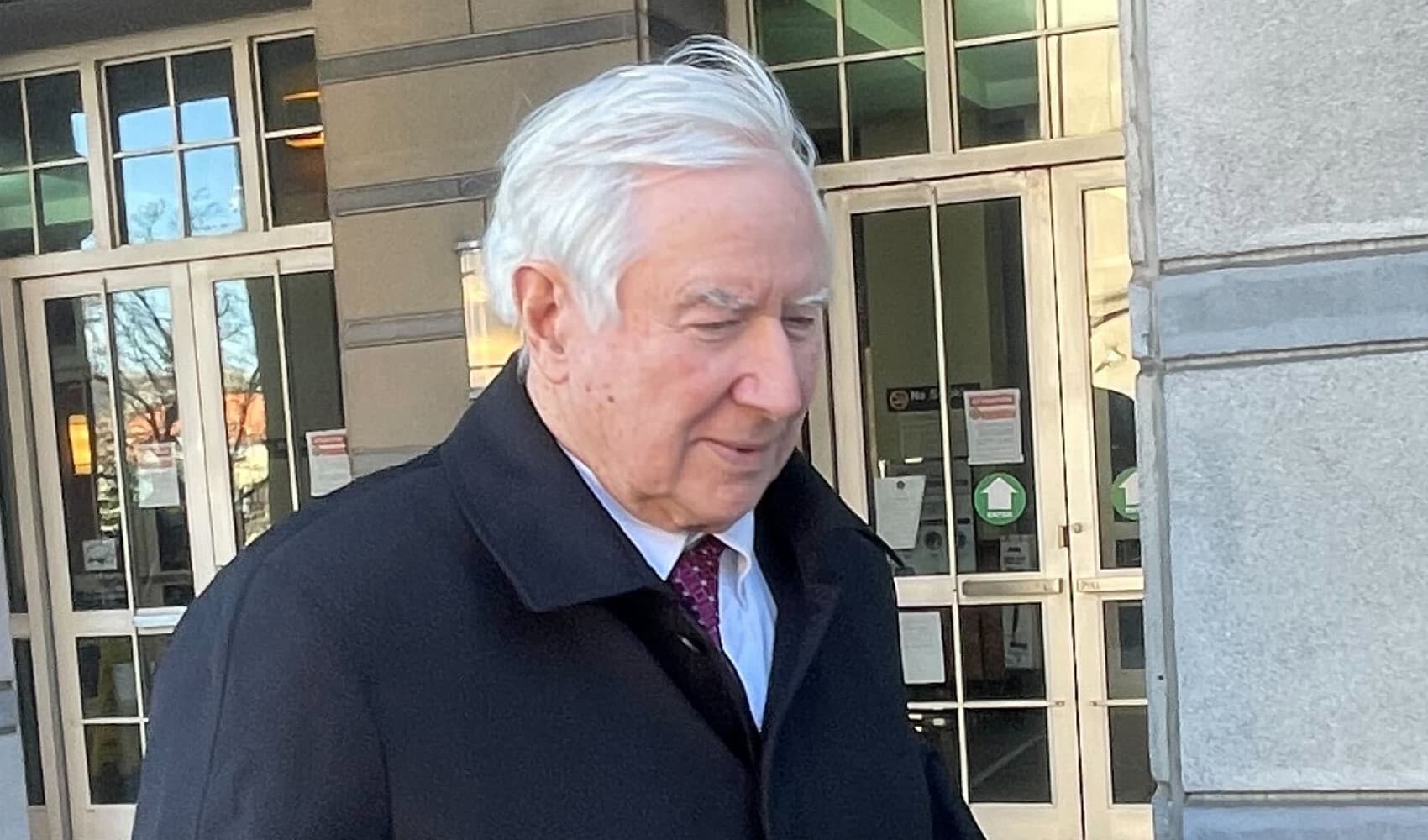Celsius CEO Sentenced: 12 Years for Crypto Fraud!
Celsius CEO Faces the Music: 12 Years for Crypto Fraud
Introduction: The Fall of a Crypto King
In the wild world of cryptocurrency, fortunes can be made and lost in the blink of an eye. But what happens when the promises of riches turn out to be nothing more than smoke and mirrors? Well, Alexander Mashinsky, the former CEO of Celsius Network, is finding out firsthand. He's been sentenced to 12 years behind bars after pleading guilty to fraud, marking a stunning downfall for a man once considered a titan in the crypto lending space.
Celsius Network: From Crypto Darling to Distressed Debtor
Celsius Network was once the darling of the crypto lending industry, attracting investors with promises of high returns on their digital assets. Mashinsky, the charismatic leader, was the face of this revolution, often touting Celsius as the "bank" of the crypto world. But beneath the surface, things were far from stable.
The Siren Song of High Yields
The allure of Celsius was its incredibly high yields, often exceeding what traditional banks offered by a considerable margin. But like any financial product offering returns that seem too good to be true, red flags should have been raised. Where was the money coming from to sustain these lofty payouts? This question, as it turns out, was a crucial one.
The Cracks Begin to Show
As the crypto market took a downturn, Celsius's vulnerabilities were exposed. The company faced liquidity issues, ultimately freezing customer accounts and sending shockwaves through the industry. This freeze, while initially portrayed as a temporary measure, was a harbinger of worse things to come.
The Charges: A Web of Deceit
Mashinsky's downfall wasn't just a result of market fluctuations; it stemmed from alleged fraudulent activities. Prosecutors accused him of misleading investors about the financial health of Celsius Network and the risks associated with its lending practices. This wasn't just a case of bad luck; it was a case of alleged deliberate deception.
Misleading Investors: Painting a Rosy Picture
One of the key allegations was that Mashinsky actively misrepresented the stability and security of Celsius, convincing investors to pour more money into a failing system. This "painting a rosy picture" strategy is a classic hallmark of fraudulent schemes.
Hiding the Risks: Sweeping Problems Under the Rug
Furthermore, prosecutors claimed that Mashinsky concealed the inherent risks associated with Celsius's operations, particularly the company's exposure to volatile and speculative crypto assets. It's like driving a car with faulty brakes and not telling your passengers.
The Verdict: Justice Served?
The sentencing of Mashinsky to 12 years in prison sends a clear message: that fraudulent activity in the crypto space will not be tolerated. But does this verdict truly bring justice to the victims who lost their savings and investments?
A Victory for the Victims
For many who lost their money in the Celsius collapse, Mashinsky's sentencing provides a sense of closure and validation. It shows that those responsible for the financial wreckage are being held accountable. Is it enough to make up for the losses? Probably not, but it's a start.
A Warning to Others
This case serves as a stark warning to other crypto executives who might be tempted to cut corners or engage in deceptive practices. The eyes of regulators and law enforcement are on the crypto industry, and they are ready to crack down on fraud. Think of it as a neon sign saying "Proceed with caution!"
Echoes of FTX and Binance: A Pattern of Crypto Crime
Mashinsky's case is not an isolated incident. He joins a growing list of former crypto executives who have been convicted of fraud or other financial crimes. Sam Bankman-Fried of FTX, Changpeng Zhao (CZ) of Binance, and Do Kwon of Terraform Labs have all faced legal consequences for their actions, creating a pattern of concerning behavior within the industry. These cases underscore the need for greater regulation and oversight in the crypto space.
Sam Bankman-Fried: A 25-Year Sentence
The case of Sam Bankman-Fried, the founder of FTX, is perhaps the most high-profile example. He's currently serving a 25-year sentence for misappropriating billions in customer funds. His empire, once valued at billions, crumbled under the weight of fraud and mismanagement.
CZ of Binance: Money Laundering Woes
Even Changpeng Zhao (CZ), the founder of Binance, the world's largest cryptocurrency exchange, has faced legal repercussions. He served time for enabling money laundering. His case highlighted the challenges of regulating global crypto platforms and preventing illicit financial activities.
Do Kwon: The Terraform Labs Debacle
Do Kwon, the mastermind behind Terraform Labs, is also facing legal action. He's blamed for a $40 billion collapse and settled with the SEC for $4.5 billion after being found liable for securities fraud. This case underscores the devastating impact that poorly designed or fraudulently marketed crypto projects can have on investors.
The Future of Crypto Regulation: A Necessary Evil?
The Celsius case, along with the others mentioned, highlights the urgent need for clearer and more comprehensive crypto regulations. While some argue that regulation stifles innovation, others believe it's essential to protect investors and prevent future fraud. It's a delicate balance, but one that needs to be struck.
Protecting Investors: A Top Priority
The primary goal of crypto regulation should be to protect investors from fraud, manipulation, and excessive risk. This could involve implementing stricter disclosure requirements, licensing regimes, and oversight mechanisms.
Fostering Innovation: Finding the Right Balance
However, it's equally important to foster innovation in the crypto space. Regulations should not be so onerous that they stifle creativity and drive legitimate businesses offshore. The key is to find a balance that protects investors without hindering progress.
Lessons Learned: What Investors Can Do to Protect Themselves
The Celsius debacle offers several important lessons for crypto investors. What can we do to better protect our hard-earned money in this high-risk, high-reward environment?
Do Your Due Diligence: Research Before You Invest
Before investing in any crypto project, take the time to do your own research. Understand the underlying technology, the team behind the project, and the risks involved. Don't just blindly follow the hype.
Diversify Your Portfolio: Don't Put All Your Eggs in One Basket
Diversification is a golden rule of investing. Don't put all your eggs in one basket, especially in the volatile world of crypto. Spread your investments across different assets to mitigate risk.
Be Wary of High Yields: If It Sounds Too Good to Be True...
If a crypto platform is offering excessively high yields, be very cautious. Ask yourself where the money is coming from and whether the returns are sustainable. Remember, if it sounds too good to be true, it probably is.
Stay Informed: Keep Up with the Latest News
Stay informed about the latest news and developments in the crypto space. Be aware of regulatory changes, security breaches, and other potential risks. Knowledge is power.
Conclusion: A Wake-Up Call for the Crypto Industry
Alexander Mashinsky's sentencing to 12 years in prison is a significant moment for the crypto industry. It serves as a wake-up call for both investors and regulators, highlighting the need for greater transparency, accountability, and oversight. The key takeaways? Due diligence, diversification, and a healthy dose of skepticism are essential for navigating the complex and often treacherous world of cryptocurrency. The future of crypto depends on building trust and ensuring that the mistakes of the past are not repeated.
Frequently Asked Questions
Q: What exactly did Alexander Mashinsky do to be convicted of fraud?
A: Alexander Mashinsky was convicted of fraud for allegedly misleading investors about the financial health and risks associated with Celsius Network. He's accused of misrepresenting the company's stability and concealing its exposure to volatile crypto assets.
Q: How does Mashinsky's case compare to the FTX scandal with Sam Bankman-Fried?
A: Both cases involve allegations of fraud and financial mismanagement in the crypto industry, leading to significant losses for investors. While the specific details differ, both Mashinsky and Bankman-Fried are accused of deceiving investors and misappropriating funds.
Q: What impact will Mashinsky's sentencing have on the broader crypto market?
A: Mashinsky's sentencing is likely to reinforce the need for stricter crypto regulations and increased scrutiny of crypto companies. It also serves as a deterrent to other executives who might be tempted to engage in fraudulent activities.
Q: What can I do to protect myself from similar crypto scams in the future?
A: To protect yourself from crypto scams, always do your research before investing, diversify your portfolio, be wary of excessively high yields, and stay informed about the latest news and developments in the crypto space.
Q: Where can I find reliable information and resources about cryptocurrency investments?
A: Look for reputable news outlets, research firms, and regulatory agencies that provide unbiased information about cryptocurrency investments. Be cautious of social media hype and always verify information from multiple sources.

